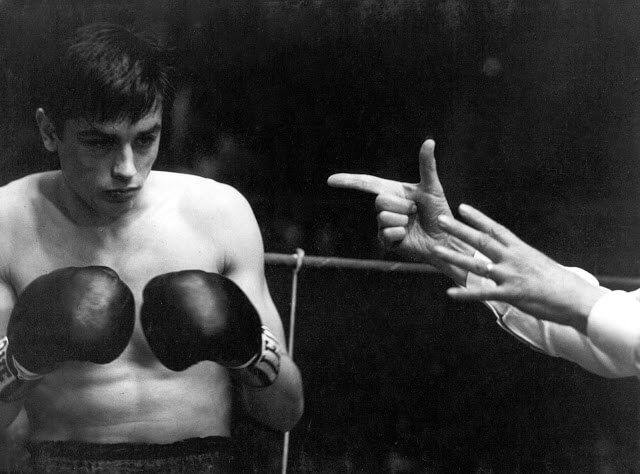Perhaps, of all the film movements in cinema history, it is Italian neo-realism which has proven to be the most influential. Dispensing of all the staged theatricality associated with early Twentieth Century movies, neo-realism evolved the medium of film into a gritty, immersive and visceral new shape which both mirrored and allegorised society. Luchino Visconti, with his 1943 movie Ossessione, is credited with spawning this movement.
Yet, for all the credit his debut feature and latter work including The Leopard and Death in Venice receive, his true masterpiece comes in the form of the devastating Rocco and his Brothers (Rocco e i suoi fratelli) (1960) - released for the first time on Blu-Ray by Eureka on 14 March 2016 (and available to order here ). This is movie which, incredibly, manages to mix the guttural tendencies of the neo-real with the grandiose of event cinema: Rocco and his Brothers exists in a hybrid-genre all of its own.
Here, Visconti - a film-maker who also, tellingly, directed opera - creates a stark, albeit lurid depiction of a destitute Southern Italian family's disintegration upon arrival in Milan. Rocco (Alain Delon), we soon learn, possesses the kindest soul of the siblings; he is hard-working and cares about others. Simone (Renato Salvatori), it transpires, does not share these values - he is brutish and insecure, his violent expressions representing self-loathing turned outwards in explosive fits. The differences between the brothers simmer for a while until a volcanic eruption of barbarity represent a point of no return for each of them and the poor souls who are sucked into their orbit.
Yet, despite the film's title, and the often swaggering machismo on-screen, this is not so much a feature about either the movie's eponymous figure or any of his siblings - the central character in Rocco and his Brothers is a prostitute named Nadia (Annie Giradot). A complicated lady whom both Simone and Rocco fall for, Nadia is a strong woman who allows herself to be controlled by men weaker than her, who expresses love by allowing herself to be degraded and besmirched. She is the tragic, operatic heart of the film and it is through this character Visconti reflects the self-destructive nature of vitriol and anger.
Perhaps the most incredible aspect of re-viewing Rocco and his Brothers in 2016, however, is to note what an incredible shadow it has cast over modern cinema. The graphic, unspeakable violence at the heart of a key scene in the movie is unlike anything Hollywood would see until the emergence of Francis Ford Coppola and Martin Scorsese a decade later. The theme of toxic masculinity apparent in Rocco has particularly coloured Scorse's own filmography and, in witnessing the brittle monochrome boxing sequences in Visconti's film, it is quite apparent where the visual influence for Raging Bull's celebrated and operatic duals stems from.
Yet, for this writer, what truly makes Rocco and his Brothers a special movie is the manner in which the joyful and the beautiful can be found nestled alongside the vulgar and evil. As Rocco and his family witness snow fall for the first time, they experience communal glee. Together they rise early to shovel the streets as a family, united by natural wonder. This is a truly humanist scene in an otherwise bleak and painful tale.



No comments
Post a Comment